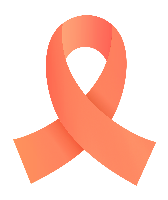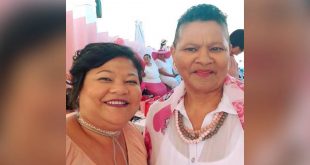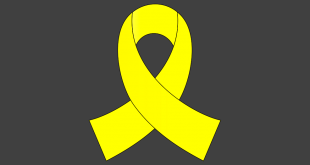 ENDOMETRIOSIS: LESSONS LEARNED FROM A HUSBAND
ENDOMETRIOSIS: LESSONS LEARNED FROM A HUSBAND
My wife died in June 2012 from a very lethal form of cancer, arising from her endometriosis. It was a serious carcinoma that, by the time it was discovered, had grown to a large mass, invading the vaginal and rectum areas, and had metastasized to three different points, including her spine. From there, cancer cells traveled to her brain, inducing the acute meningitis that finally took her life.
From the time her cancer was discovered–the day of her 50th birthday–until her passing, there were only 12 weeks. Gladly, she didn’t suffer as much pain during these last few days as she had suffered since the day her endometriosis was diagnosed–22 years earlier, when she was 33 years old. However, once she became aware of the endometriosis, it became evident that she had been suffering from the illness since she was a teenager, experiencing very extended, bloody and painful menstrual cycles that she accepted as the norm.
My wife and I both worked in risk management, and three days before she died, we talked about how the risk of endings in the situation could have been managed better. She then suggested I extract lessons from our experience with endometriosis and pass them to others. It took me four years to finally write them down in this document. It is our intention that these learnings create awareness about some of the root causes of endometriosis, its consequences, and the risks that the illness brings, not only to the physical condition of the sufferer, but to the couple facing endometriosis as a daily challenge in their life. On the proactive side, we hope that some of the learnings may contribute to prevention of the very serious impacts on the relationship and on the physical and mental health of the couple.
As I learned very early, when it comes to endometriosis, it is always two people dealing with the illness–the wife and the husband–and each one needs to learn to manage it from his/her own point of view. I will navigate the events, going backwards in time, using a simplified cause and effect methodology.
Late discovery of her cancer:
Her cancer was discovered late because endometriosis makes the person used to coping with strong pain. She was already under an Oxycontin protocol for 7 years, since she’d had her hysterectomy surgery, and chronic pain became an aftermath from it. Another important reason why her cancer was discovered late was generalized medical negligence. Five different doctors–including her endometriosis specialist–in three different institutions, failed to suspect cancer. About a year before her cancer discovery, she started noticing that her legs were swollen at times. Two different doctors saw her and believed that she was retaining liquids due to some kidney issues, and she was given diuretics. These drugs helped for a few weeks, but the swelling kept coming and extending. She started to experience a bit of fever during her inflamed legs episodes. Then, the doctors gave her antibiotics, as her legs looked swollen, red and warm. At this point, they started using the word lymphedema, but no further testing was done. I remember her giving up on looking for medical aid, not taking the antibiotic treatment, six months before the major vaginal bleeding came, when finally her cancer was detected.
How endometriosis evolved into cancer:
Unfortunately, when she had the hysterectomy, the surgeon couldn’t remove the section of the uterus close to the cervix because it was too interconnected with adhesions to other organs and arteries. He was tired after three hours in the operating room. This leftover piece of uterus was the spot that turned into cancer. It is important to note that my wife had one of the most aggressive and invasive forms of endometriosis. Adhesions had already spread to large areas of her abdomen, welding her bowels and lower organs. Before the hysterectomy, she had laparoscopies every two years on average.
Also, immediately after her hysterectomy, she was put in hormone replacement therapy by her endometriosis doctor, and the risk of cancer arising with the use of synthetic hormones was never discussed with her. It is a proven fact that these kinds of hormone therapies not only significantly increase the risk of cancer in a woman with severe endometriosis, but they are also known to induce blood clots. My wife also had a minor cerebral stroke, five years after hormone replacement therapy started, and this was the reason her doctor finally suspended the protocol. She did well without the hormone pills, but a year after the swelling in the legs started, the damage had been done.
Last but not least, we separated after her hysterectomy, and she went through a very tough and emotionally stressful period in her life, worsened by the illness and death of her father. Having the chronic pain turned her almost into a disabled person, unable to work. It is well documented in literature that high and continuous periods of stress are a cancer risk.|
Why had endometriosis spread so much before being discovered?
I already mentioned that my wife, since she was a teenager, had been experiencing the typical signs of endometriosis each time she had a period. However, she got used to dealing with the pain and discomfort and never looked for help. I also got used to it, but in a different way. I learned to cope with her strong emotional swings during her periods. I got used to her very reactive, emotional personality. I had noticed that even under a small amount of stress, i.e. debating or contradicting her, she would explode in angry outbursts, so I did my best not to trigger them and to pay no attention to what she was saying or yelling during these moments. Once she was back to normal, she was again the lovely and sweet woman I loved.
Also, when we married, we didn’t pay too much attention to the fact that she was not getting pregnant. We became complacent with the condition. When finally, her endometriosis was diagnosed and she had her first surgery, we discounted the severity of her illness. We thought that it was not going to come back, but then, a year after the first surgery, the symptoms were back, and again, she underwent another surgery. We got used to this surgery cycle. The doctor told us a pregnancy would help her by stopping the menstrual cycles, or that she should be on a hormone treatment to prevent the cycles, but we didn’t implement any of the options. We didn’t favor the hormone treatment because we read the literature, and the risks and side effects were very concerning.
What consequences did endometriosis bring to the relationship?
We separated the year of her hysterectomy. By then, I had become overwhelmed by her very frequent angry outbursts and emotional instability, feeling like I was walking on eggshells all the time. She also became very altered by the frequent use of Oxycontin at that time. She had become addicted to the pain killer. I found myself drinking alcohol very frequently. It was my way to escape from an emotional situation spinning out of control. We failed to look for counseling or psychological help. I blame her doctor for facilitating and encouraging the high use of Oxycontin. Fortunately, about three years before she passed away, she was able to significantly reduce the use of the painkiller. After she passed away, I found over 500 pills she never took.
I can say today, if on the very first day her endometriosis was diagnosed, her doctor had explained to us the effects this illness can have on a relationship, things could have been different. One of my biggest regrets was the fact that I couldn’t understand how this illness was taking control of our life, what the causes were, and what needed to be done to prevent this, so I would have been able to support her in a better way.
And last, why did she have endometriosis?
It is still not clear to the medical community what causes endometriosis, but there are medical studies that have found correlations that point at contributing factors such as genetic/family history, exposure to chemicals, and psychological trauma, such as child abuse. I personally know two medical researchers that did a study that connected the incidence of endometriosis and sexual child abuse. Abuse means any of its forms: Physical/violent abuse, sexual/molestation abuse, and psychological abuse. The fact that this specific question was in the medical history form of the hospital where she died, indicates that this is a relevant known correlation.
It was only until the week before my wife passed away that I found a medical history form that she never returned to the hospital. In it, she stated that she had been a victim of molestation and violent treatment during her early years of life. And then, many things clicked in my mind. I now believe, as a consequence of this, she developed post-traumatic stress disorder. I already mentioned that she had a very low threshold of tolerance to stress before losing emotional control and exploding into an angry outburst. But the important issue here is the connection to endometriosis. After her death, I also talked to a close friend of hers, who also had endometriosis. I asked about abuse, and her answer was also, “yes.” She also seemed to have had a past relative that may have had endometriosis, but in the old times, this illness was not well known, so in this case, it is not hard evidence.
Take Away:
I do believe that if someone had made the information in these pages available to us, back when the whole endometriosis story began for us, we could have done our best to change how the story ended. If you are navigating through it, please try to change the ending. My wife was a very loving, giving, talented and beautiful person. Please accept these lessons from her and use them, or pass them forward.
Frank
Canada
Submitted 09/19/2016
The informational content of this article is intended to convey a personal experience and, because every person’s experience is unique, should not be relied upon as a substitute for professional healthcare advice.
This story is intended to convey a personal experience and, because every person’s experience is unique, should not be relied upon as a substitute for professional healthcare advice.




How gracious and transparent of you to share this very personal story of your loved ones illness…I am sure it will help many. God bless you.
So sorry for your loss. I am a 6 yr cancer survivor of the same type cancer but my issues didn’t start until I was 47 well actually 46 I guess. I too never had children. Thank you for sharing your story and making people aware and when something is not right keep looking until you get a correct answer. God Bless
Thank you Frank, that must have been very hard. I will try to consider my husband now with my endometriosis and how it must effect him too. God bless you
Hi Frank. Thank you for sharing. You have done your best to understand and support your wife. It’s obvious you also have done your research. Yes, stress, is the main cause for cancer and many other diseases. Yes, childhood abuse is a cause for endo but actually endometriosis is only a symptom of a syndrome named adrenal fatigue I am talking from experience here. I suppose your wife suffered of adrenal fatigue starting in her childhood because of to much emotional stress. Unfortunately this is another disease which is totally denied but medicine like endometriosis was until recently. Let’s hope in 5 , 10, years it will be considered real. Thank you and God bless you.